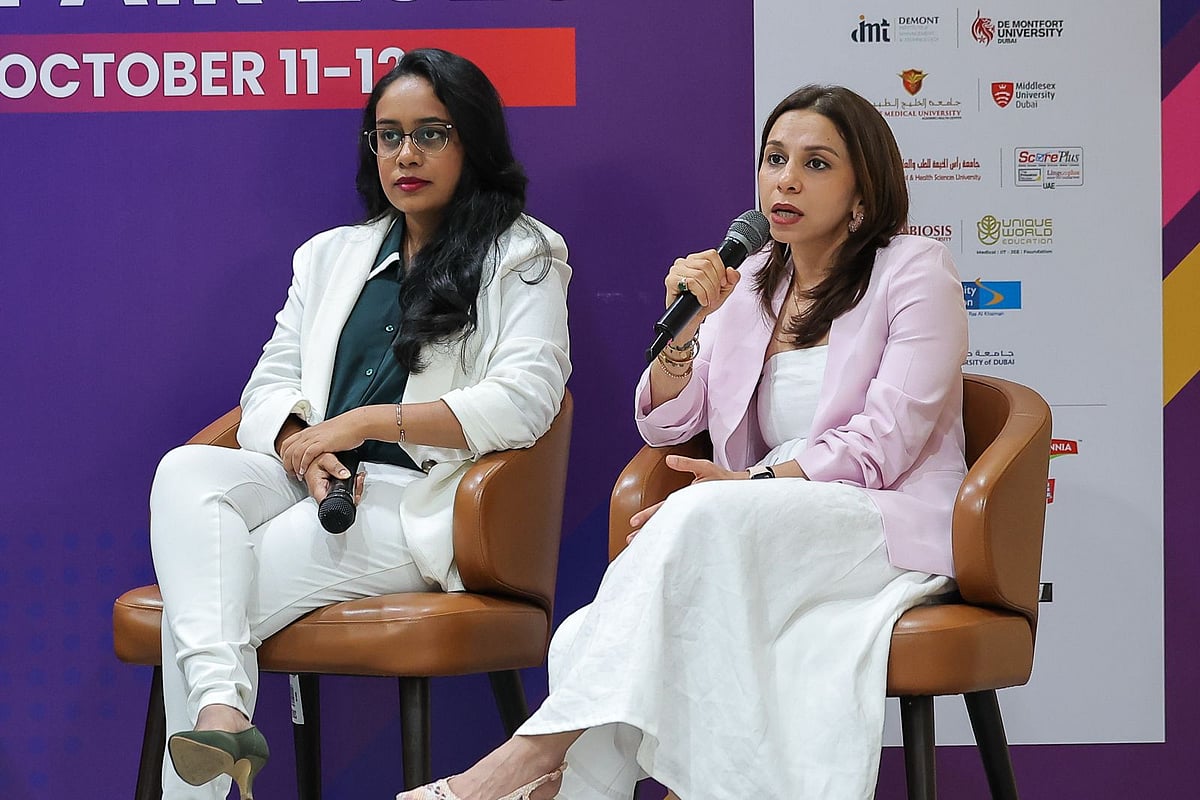Success Through Mentorship and Networking for Students
In today’s competitive job market, academic qualifications are just the beginning of a successful career. The Gulf News Edufair in Abu Dhabi 2025 emphasized the importance of mentorship, networking, and a growth mindset as essential components for students aiming to thrive in their professional lives. Experts at the event highlighted how these elements can significantly influence career trajectories.
The Role of Networking in Career Growth
While academic knowledge is vital, the connections one builds can often be the key to unlocking career opportunities. Anushka Lydia Issac, Head of Business Programmes and Student Engagement at Demont Institute of Management & Technology, pointed out that while technology can assist in crafting a résumé, it cannot replace the value of personal connections. “AI can help you formulate your résumé, but it cannot vouch for your reputation,” she stated, emphasizing the need for a robust human network that reflects one’s values and experiences.
Dr. Akanksha Khanna, Assistant Professor of Management at Symbiosis International University Dubai, echoed this sentiment, noting that trust and credibility are inherently human traits that technology cannot replicate. She highlighted the unique environment in the UAE, where students interact with peers from over 200 nationalities, fostering cross-cultural intelligence essential in today’s AI-driven world.
Meaningful Networking: Beyond Just Connections
Both speakers stressed that effective networking goes beyond merely accumulating contacts on platforms like LinkedIn. Dr. Khanna explained that true networking is about collaboration and contribution. “It’s important for students to understand that networking isn’t about collecting contacts – it’s about building collaborations,” she said. This perspective shifts the focus from transactional relationships to meaningful interactions that can lead to mutual growth.
Issac reinforced this idea by urging students to prioritize depth over breadth in their networking efforts. “You don’t get hired just because of what’s written on paper,” she noted. “You’re chosen because of the value you bring and the reputation you’ve built through real human interactions.”
The Importance of Mentorship
Mentorship is a critical aspect of building a strong professional network. According to Issac, effective mentors listen and ask the right questions rather than simply providing answers. “A good mentor doesn’t just talk about their achievements – they listen,” she explained. This approach encourages mentees to think critically and develop their own solutions.
Dr. Khanna emphasized the importance of finding mentors whose values and journeys resonate with students’ aspirations. “Students should try to find mentors whose journeys align with their aspirations and not just those with impressive titles on LinkedIn,” she advised. Structured mentoring frameworks within educational institutions can enhance this process, providing students with valuable feedback and real-world skills.
Lifelong Learning and Adaptability
In addition to mentorship, adaptability and a willingness to learn are crucial for success in today’s rapidly changing job market. Dr. Khanna pointed out that grades often reflect memory rather than growth. “To succeed today, students must learn how to connect, stay flexible, and be lifelong learners,” she stated, advocating for educational systems that reward curiosity and the learning process rather than solely focusing on outcomes.
Issac added that receptiveness to feedback distinguishes good learners from great ones. “When you believe you already know it all, you close yourself off from improvement,” she cautioned. Embracing feedback, even when challenging, is essential for personal and professional growth.
Resilience in the Modern Workplace
The traditional career path of remaining with one organization for decades is becoming obsolete. Dr. Khanna highlighted the need for resilience and adaptability in today’s workforce. “You need to be willing to change, pivot, unlearn, relearn, and keep growing,” she advised.
Issac encouraged students to regularly reassess their skills and knowledge. “I often tell my students to think in three- or four-year cycles. Every few years, go back to your foundation. Break down what you know, assume you’re starting from scratch, and rebuild yourself,” she suggested. This approach helps individuals remain relevant and resilient in an ever-evolving job landscape.
FAQs
What is the significance of networking for students?
Networking is crucial for students as it helps them build relationships that can lead to career opportunities and collaborations, enhancing their professional growth.
How can students find effective mentors?
Students should seek mentors whose values and experiences align with their career aspirations, focusing on those who can provide guidance and support rather than just impressive titles.
What skills are essential for success in today’s job market?
Adaptability, lifelong learning, and the ability to accept feedback are vital skills, as they enable individuals to navigate the rapidly changing professional landscape effectively.
Conclusion
The Gulf News Edufair highlighted that while academic achievements are important, the true drivers of career success lie in mentorship, networking, and a commitment to lifelong learning. Students are encouraged to cultivate meaningful relationships and remain adaptable to thrive in their future careers. Embracing these principles will prepare them for the challenges and opportunities ahead.
Also Read:
Japan Wraps Up Successful World Expo 2025
Dubai Municipality Unveils AI Solutions at GITEX Global 2025







